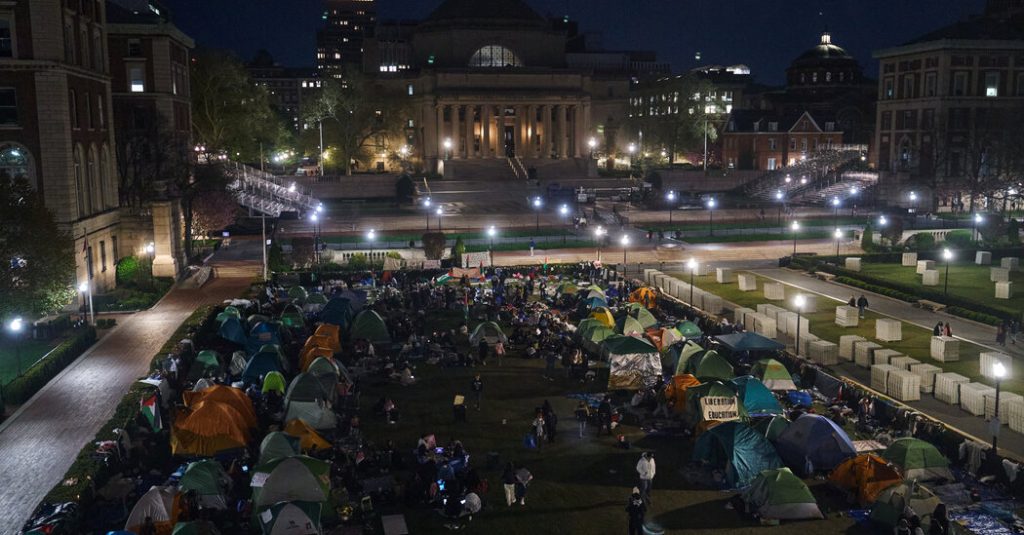Columbia University announced that all classes would be held remotely after a wave of protests on campus in response to safety concerns for Jewish students. Pro-Palestinian student protesters erected tents on campus demanding divestment from companies tied to Israel, leading to over 100 arrests by the NYPD. President Minouche Shafik expressed sadness over recent events and called for a reset on campus. A working group has been formed to address the crisis and engage with the protesters to peacefully resolve the situation.
The protests on campus have caused tension and fear among the Jewish community at Columbia, with some students being targeted with antisemitic comments. Rabbi Elie Buechler informed Jewish students of safety concerns and urged them to return home. The protests also drew condemnation from city and national officials, including the White House and Mayor Eric Adams. Pro-Palestinian demonstrators, both on and off campus, added to the tense atmosphere on campus.
Dr. Shafik emphasized the importance of reporting problems through university channels and called for a return to Columbia’s core values of learning, mutual respect, and kindness. The decision to involve the police in handling the protests has been criticized by students and faculty members. She highlighted the need for compassion, understanding, and collaborative efforts to rebuild the connections between members of the Columbia community. The university is working towards a resolution to the current crisis through discussions with all stakeholders involved.
The campus has been engulfed in protests since last week, with tensions rising following the arrests of pro-Palestinian students and the verbal attacks on Jewish students. The University has taken a proactive approach to address safety concerns and ensure a peaceful completion of the term. Dr. Shafik has acknowledged the strain recent events have placed on the university’s community and emphasized the need for respectful engagement and dialogue moving forward. The situation remains fluid, with ongoing efforts to de-escalate tensions and find common ground among all parties involved.
The decision to move classes online was made in response to safety concerns and growing tensions on campus. The university has prioritized the well-being of its students and faculty members amidst the ongoing protests. Dr. Shafik has called for a period of reflection and compassionate understanding to heal the divides within the Columbia community. The continuation of discussions with the protesters and the implementation of actions to promote peaceful coexistence are crucial steps in resolving the current crisis.
As the situation at Columbia University continues to unfold, it is clear that a reset is needed to address the underlying issues and rebuild trust within the community. The university is committed to fostering an environment of respect, understanding, and inclusivity for all its members. By engaging in constructive dialogue and taking concrete steps towards conflict resolution, Columbia aims to move past the recent unrest and create a more harmonious and supportive campus environment for everyone.


